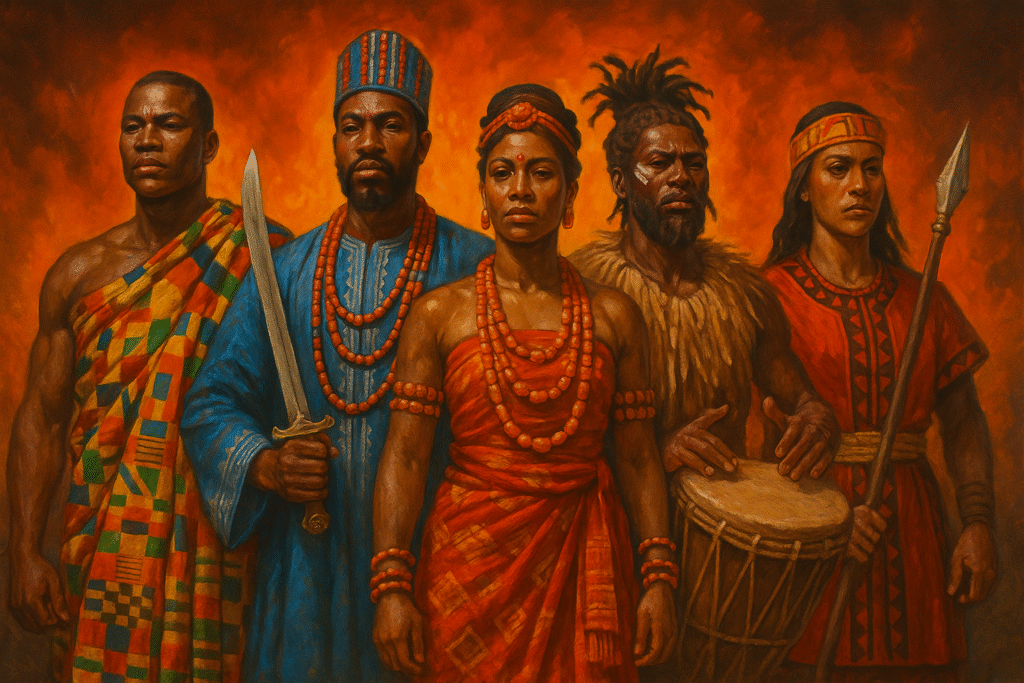
Over the last five centuries, the soul of Jamaica has been forged in fire—resistance, survival, and transformation. It is a nation that emerged from genocide, endured centuries of slavery, and evolved into a culturally powerful and independent country. At the center of this story lies the enduring spirit of Jamaicans of African descent. This spirit did not come from nowhere. It came from mighty African kingdoms, fierce warriors, skilled farmers, and spiritual leaders—men and women ripped from their homelands and scattered across the Atlantic. Today, the rhythm of the drum, the defiant tilt of the head, the resistance in our bones, and even the words on our tongues echo the voices of our African ancestors.
The African Origins of Jamaicans
The majority of Jamaicans are descendants of Africans forcibly brought to the island between the 17th and 19th centuries during the transatlantic slave trade. Although European slave traders grouped them as “Africans,” these men, women, and children came from a range of distinct ethnic groups, nations, and cultures across West and Central Africa. The largest contributions came from the Gold Coast (modern-day Ghana), the Bight of Biafra (primarily Nigeria), and West-Central Africa (especially Congo and Angola regions).
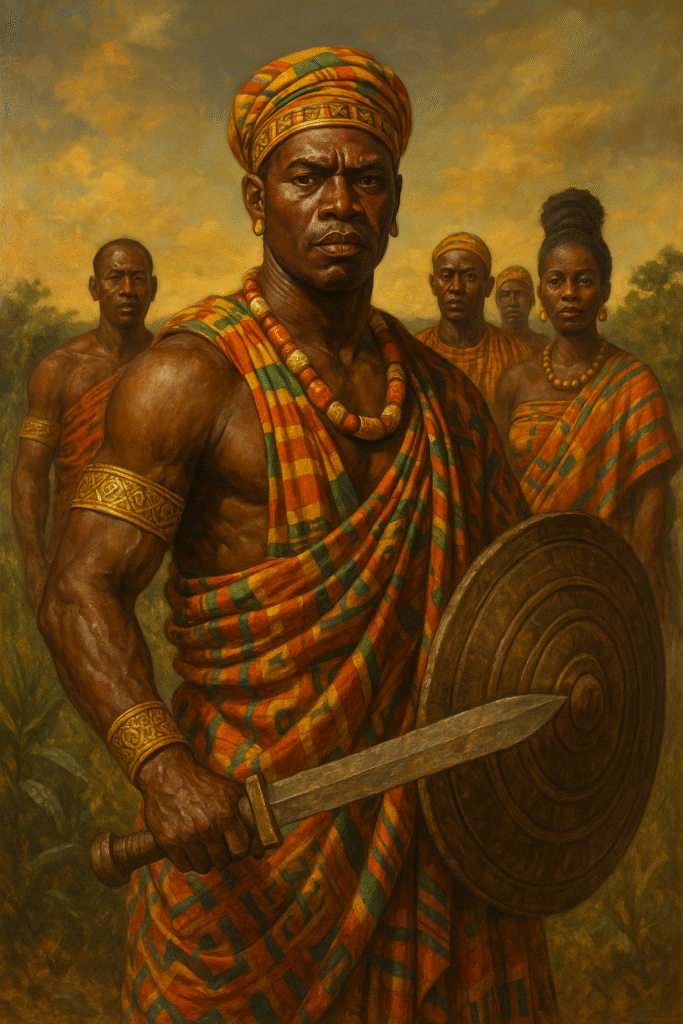
Based on slave ship records, African Jamaicans are mainly descended from the following tribes and peoples:
1. Akan Peoples (Ghana)
- Asante (Ashanti), Bono, Wassa, Nzema, Ahanta
Known collectively by the British as the “Coromantee,” the Akan were feared and respected. Their traditions, warfare skills, and spiritual systems heavily shaped Jamaican society—particularly the Maroon communities who maintained strong Akan customs. Coromantee slaves were considered rebellious, organizing numerous uprisings, including the legendary Tacky’s Revolt of 1760.
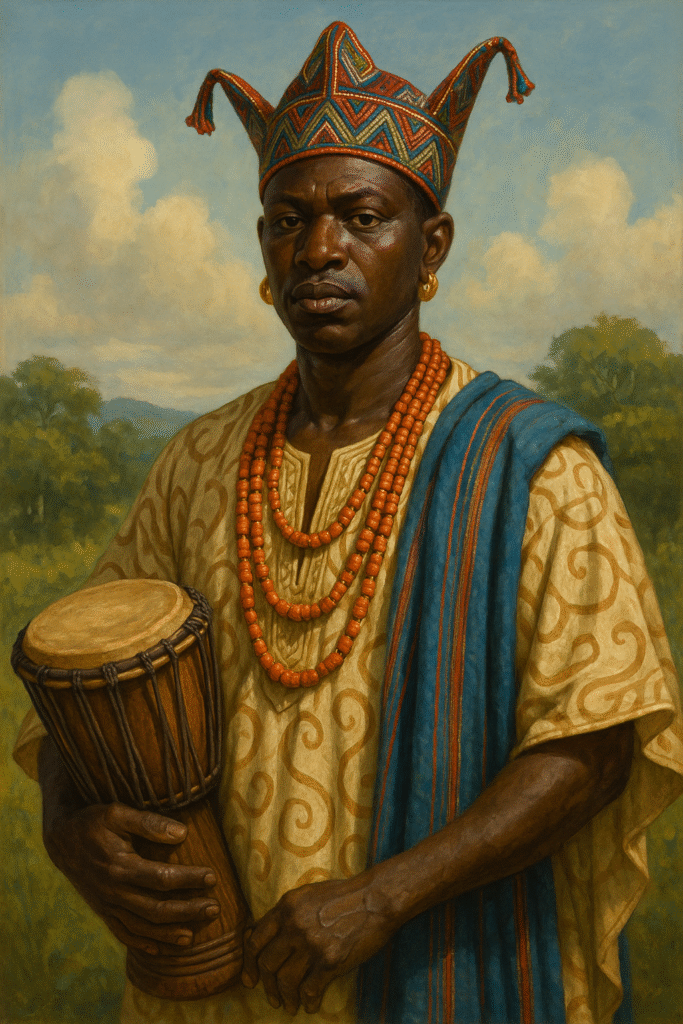
2. Yoruba (Nigeria)
- Spiritual, urbanized, and culturally rich, the Yoruba brought with them a pantheon of orishas (deities), drumming traditions, and social structures that subtly influenced Jamaican Myal and later Revivalist practices.
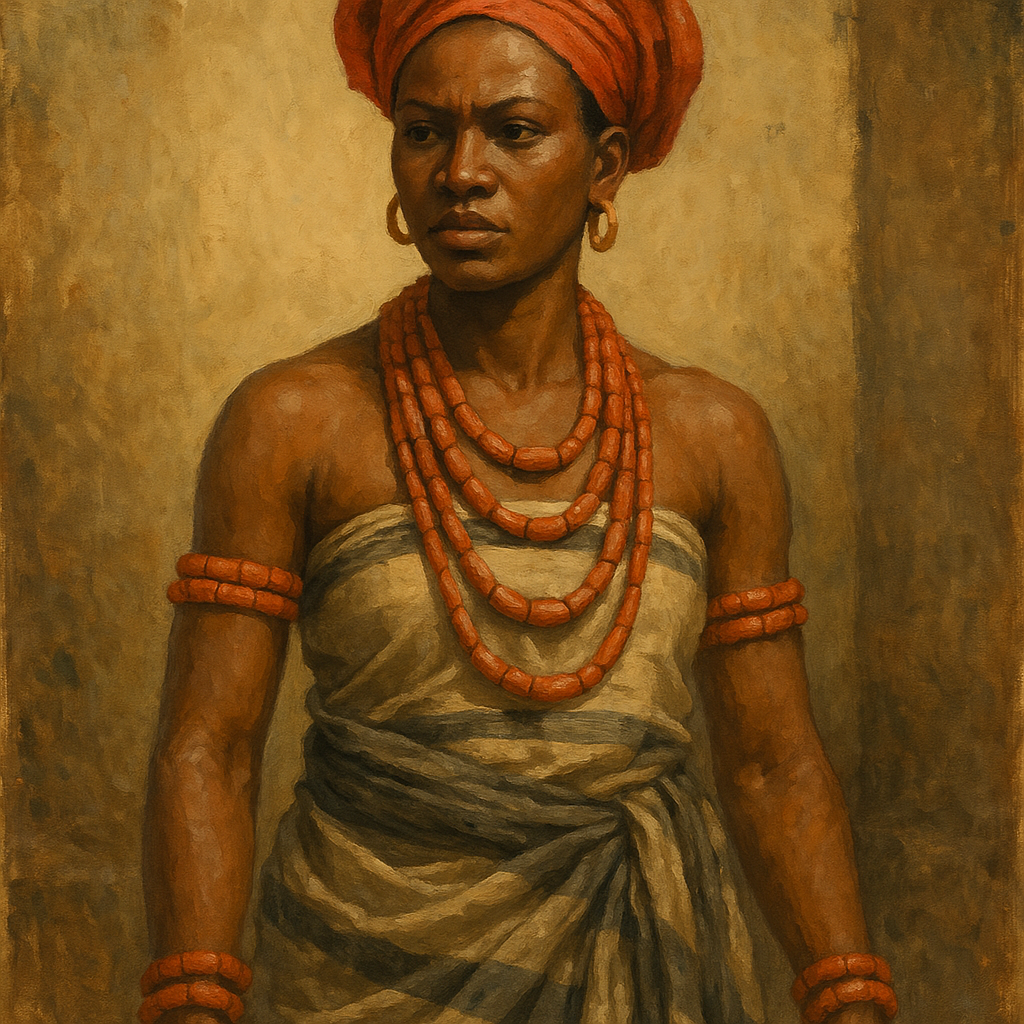
3. Igbo (Nigeria)
- Known for their resilience, the Igbo contributed to Jamaica’s language, religious customs, and folktales. Despite arriving in large numbers—especially to Montego Bay and St. Ann’s Bay—they were often seen as “less rebellious,” although many participated in passive resistance and self-liberation acts.
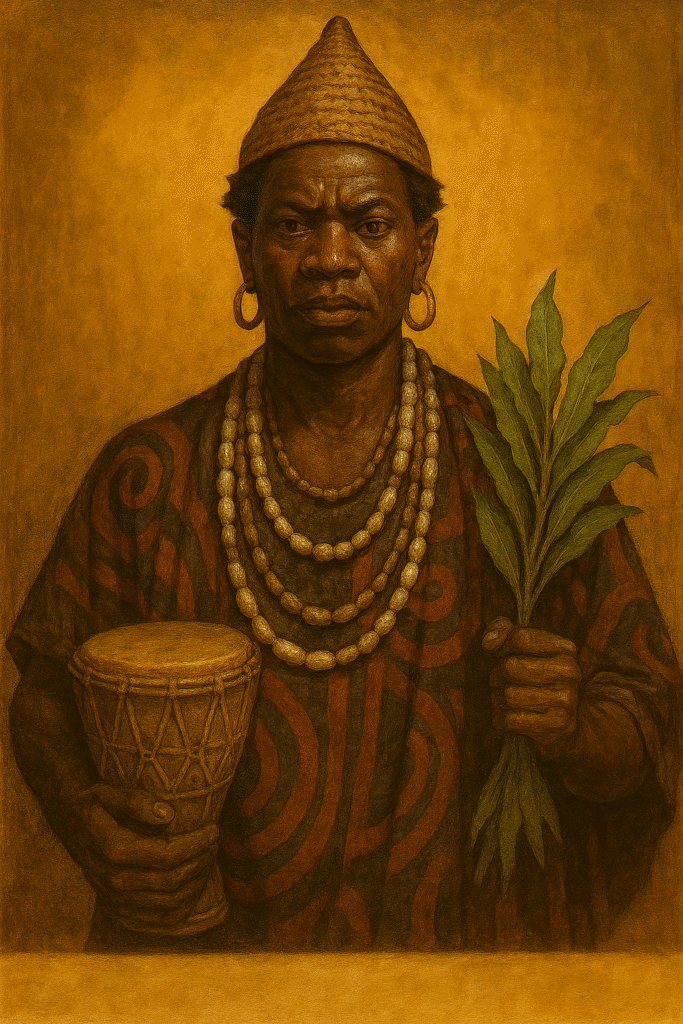
4. Kongo Peoples (Central Africa)
- Their influence is deeply felt in Jamaican spirituality. Kongo cosmology is believed to be a foundation of Jamaican Myal, Kumina, and Revivalist practices. Congo names, dances, and healing traditions persist, particularly in eastern Jamaica.
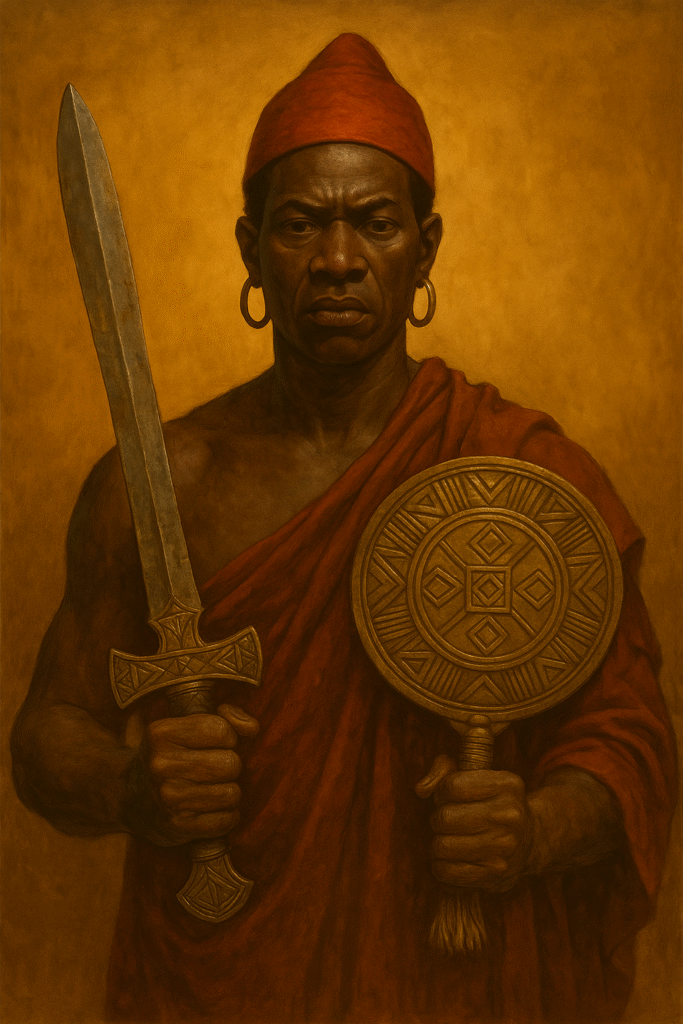
5. Fon and Ewe (Benin, Togo)
- Associated with the powerful Dahomey Kingdom, these groups brought warrior traditions and spiritual concepts that blended into the Jamaican religious framework, particularly within Pocomania and Zion Revival movements.
6. Ibibio and Efik (Nigeria)
- Though lesser-known, they contributed to Jamaican music and speech, particularly in proverbs and storytelling traditions.
The Cultural Legacy of African Tribes in Jamaica
Language – Jamaican Patois
Jamaican Patois, or Patwa, is not just broken English—it is an Africanized English Creole shaped by centuries of African influence. Many words in Patwa derive from Akan (especially Asante-Twi), Igbo, and Kikongo. Terms like duppy (ghost), nyam (to eat), obeah (folk magic), and unu (you all) are directly linked to African tongues.
Spirituality – Myal, Kumina & Revival
The Akan spiritual system (Kumfu) was carried to Jamaica and preserved by Maroons. Over time, it evolved into Myal, a spiritual practice centered around spirit possession, healing, and protection. Myal later merged with Christianity, forming Revivalism. Revival has two main orders:
- 60 Order (Zion Revival) – focused on heavenly spirits (akin to Nyame, the Akan sky god)
- 61 Order (Pocomania) – more earth-based and spirit-invoking, linked to Asase Yaa, the Akan earth goddess.
These systems use colours, swords, drumming, and ritual dance, echoing African ceremonies.
John Canoe Festival
This masquerade festival traces back to an Akan chief named John Kenu (anglicized as John Canoe) from Axim, Ghana. Celebrated in Jamaica and other Caribbean islands, the festival honors his resistance against European forces. Dancers in horned masks and elaborate costumes parade to drumming, symbolizing both defiance and survival.
DNA Doesn’t Lie: Genetic Ties to Africa
Recent genetic studies reveal what oral traditions have long preserved: Jamaicans are deeply rooted in the Asante-Akyem region of Ghana, with over 59% of tested Jamaicans sharing maternal DNA (mtDNA) markers with people from the Gold Coast. Despite the numerical increase in slaves from Nigeria and Congo later in the slave trade, the Akan cultural legacy was more dominant—likely due to better survival rates, early arrival, and the strength of retained traditions.
Other significant findings:
- Jamaicans average 97.5% African mtDNA (maternal line)
- 80.3% of their total ancestry is Sub-Saharan African
- 19% of Jamaican Y-DNA (paternal line) is European, reflecting the brutal reality of sexual violence during slavery
- Small traces of Chinese and Indian ancestry are present due to later indentured labor systems after emancipation
Blood, Resistance, and Rebirth
The African peoples brought to Jamaica were never passive victims. They brought with them cosmologies, healing practices, rhythms, resilience, and warrior codes. They transformed the cane fields into crucibles of revolt and the mountains into sanctuaries of freedom. Out of the ashes of slavery, they forged a culture that is proud, powerful, and pulsing with African memory.
Today, you can hear Africa in the bassline of reggae, see it in the sway of Revival dancers, taste it in ackee and saltfish, and feel it in the wisdom of Jamaican proverbs.
“Wi likkle but wi tallawah” is not just a Jamaican saying—it’s a philosophy inherited from ancestors who were anything but little.
The Tribes in Summary:
| Region | Tribes / Peoples | Modern Country | Influences in Jamaica |
| Gold Coast | Akan: Asante, Bono, Nzema, Ahanta, Wassa | Ghana | Maroon culture, language, Myal/Revival |
| Bight of Biafra | Igbo, Ibibio | Nigeria | Language, proverbs, folk wisdom |
| Bight of Benin | Yoruba, Fon, Ewe | Nigeria, Benin, Togo | Spirituality, drumming, healing |
| West-Central Africa | Kongo, Mbundu | Congo, Angola | Kumina religion, Congo drums, rituals |
| Windward Coast | Kru, Mande | Liberia, Ivory Coast | Proverbs, spiritual practices |
Final Thoughts
To be Jamaican is to be deeply African—whether through blood, spirit, or memory. The enslaved Africans brought to Jamaica did not come as empty vessels. They came with kingdoms in their minds and gods in their bones. Though they were shackled, their identity could not be erased. And today, every heartbeat of Jamaica still echoes with the drumbeat of Africa.
We are Asante defiance.
We are Kongo rhythm.
We are Yoruba spirit.
We are Igbo wisdom.
We are Jamaica.
🇯🇲🔥🖤 #AfricanRoots #JamaicanPride #FromAfricaToYard
